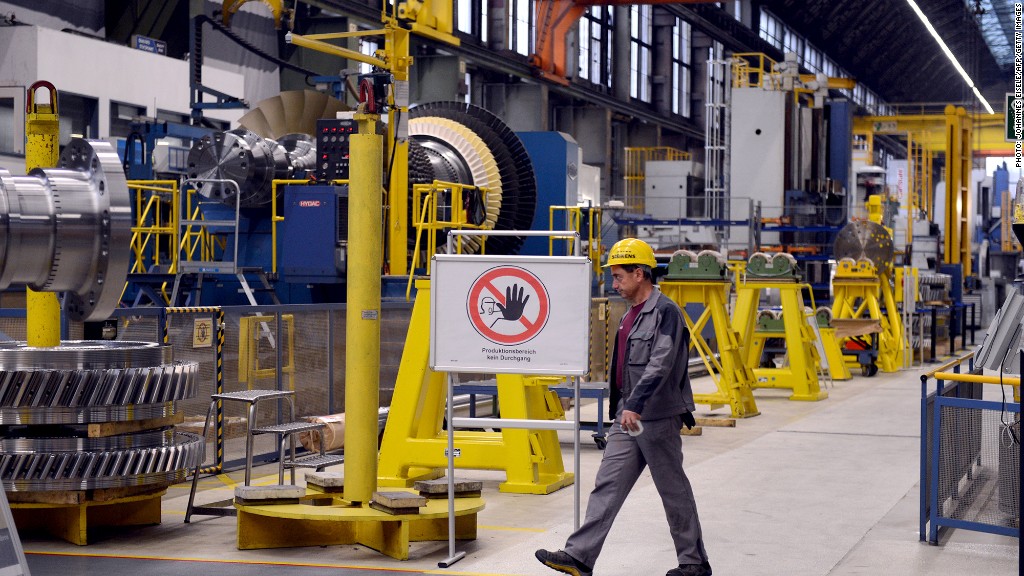
Germany's central bank said the country may slip into recession early next year, confirming Europe's biggest economy has lost much of its immunity to the economic gloom pervading the region.
"The cyclical outlook for the German economy has dimmed," said the Bundesbank in a statement. "There are even indications that economic activity may fall in the final quarter of 2012 and the first quarter of 2013."
The Bundesbank is now predicting growth of just 0.4% next year, down from a June forecast of 1.6%. It blamed the impact of deep recessions in other eurozone countries engaged in biting austerity programs, and the slowing global economy.
The European Central Bank published new forecasts Thursday which suggested that the eurozone economy as a whole will likely contract further in 2013, after falling back into its second recession since 2009 during the third quarter of this year.
Until recently, Germany was able to ride out the region's economic woes on the back of strong exports to the United States and Asia.
But signs of slacker global growth and uncertainty created by the eurozone credit crisis have prompted companies in Germany to invest less and postpone or cancel planned projects. Unemployment has also been rising, and the Bundesbank now expects the jobless rate to hit 7.2% in 2013, up from 6.8% this year.
German industrial production fell 2.6% in October , the statistics office said Friday, compared with a decline of 1.3% in September.
Related: Europe's jobless lines keep growing
Still, the Bundesbank believes the world's fourth-biggest economy could rebound quickly -- generating growth of 1.9% in 2014 -- provided eurozone policymakers push ahead with reforms and the global economy regains momentum.
Governments in countries such as Italy, Spain, Portugal and Greece are engaged in multi-year austerity programs aimed at putting their national finances on sustainable footing. Portugal said Friday that it's economy shrank by 3.5% in the third quarter, compared with 3.1% in the second.
And EU finance ministers are grappling with plans to launch a banking union, seen as critical to efforts to draw a line under the crisis and a key test of the willingness of eurozone countries to push forward with deeper integration of the currency area.
"The sound underlying health of the German economy suggests it will overcome the temporary lull without major damage to employment, in particular," Bundesbank President Jens Weidmann said.
The respected Ifo business climate index for November saw its first month-over-month gain since March, suggesting companies in manufacturing and trade were more satisfied with their current situation and slightly less pessimistic about the future.
But Ifo's own data, and other surveys, show the country's service sector remains depressed. Markit's purchasing managers' index for November registered the sharpest fall in German services activity since June 2009.


